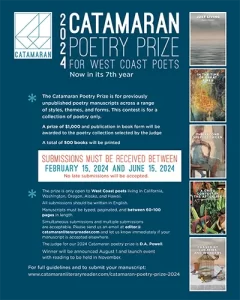The Zen of Chainsaws and Enormous Clippers
Inside the back cover of Drew Kalbach’s chapbook of prose poems is a section of text from the author, in which he writes one seemingly random sentence after another about the collection: “several children read the manuscript, but they started crying” and “it is a tribute to the ninja turtles disguised as a marilyn manson song disguised as real poetry” are two of the tamest examples. But among the chaos of this self-deprecating afterword, Kalbach has this thought about the chapbook: “it is so deep and layered that you can’t read it, you must climb through it.” Despite his immediately negating that idea by writing “there is no depth,” I could not help but grasp at the metaphor; it seemed to describe my own experience with the poems. These prose poems do have depth, and I didn’t so much read them as climb through them, over words and images, across sentences and line breaks.
Inside the back cover of Drew Kalbach’s chapbook of prose poems is a section of text from the author, in which he writes one seemingly random sentence after another about the collection: “several children read the manuscript, but they started crying” and “it is a tribute to the ninja turtles disguised as a marilyn manson song disguised as real poetry” are two of the tamest examples. But among the chaos of this self-deprecating afterword, Kalbach has this thought about the chapbook: “it is so deep and layered that you can’t read it, you must climb through it.” Despite his immediately negating that idea by writing “there is no depth,” I could not help but grasp at the metaphor; it seemed to describe my own experience with the poems. These prose poems do have depth, and I didn’t so much read them as climb through them, over words and images, across sentences and line breaks.
To read a Kalbach piece for some easily comprehensible meaning is to miss out on the joy of how its various parts precariously rest against each other, like boulders in a rock scramble. Take this excerpt from “A Series of Intertwined Coincidences Beginning at Childhood”:
Now plays involve slow tongue cutting and embryo
torture in perfect blank verse. You hear the sound of
tires crunching gravel. It’s midnight and the fan is
broken and your perfect raincoat is somewhere in
Finland.
What’s most interesting in this stanza is the first sentence. Kalbach holds us with a painful image from which we cannot quickly escape due to his drawing out the vowels in the phrase “involve slow tongue cutting.” We are momentarily relieved, however, by the nice drop at the end of the word “embryo” as well as the line break, but we fear for the embryo. And rightly so, for Kalbach again sends us climbing with the word “torture.” In the next sentence, we take a break in the sometimes overused imagery of “tires crunching gravel,” though it echoes the violence done to the tongue with the rhyme between “cutting” and “crunching.” This is a nice way to give a reader the chance to pause on a rather mundane sentence, while still allowing the tension in the stanza to build. The release comes during the final two lines, in which Kalbach shows off a little sense of humor. A “perfect raincoat”? “Finland”? In three sentences, Kalbach shifts his prose from horrifying to comically pleasing. And he does so through a careful weighing of his options: sound, rhythm, rhyme, image, timing.
Kalbach’s poems do not seem to create meaning from any sort of neat, coherent structure, but rather from the odd spaces between their parts, how each part crashes against the next. This is not to say that the poems are not structured, but that meaning comes less from the definitions of the words and their logical arrangement and more from how we feel as we read. We have already seen how Kalbach structures each of these poems purposefully, but to what effect? I suggest that the emotional and intellectual process of reading these poems creates a sort of meaning, if we are willing to embrace our confusion and the sudden shifts in our emotions as that meaning. In this way, the short length of the chapbook is misleading; readers will have plenty of language to climb through.





